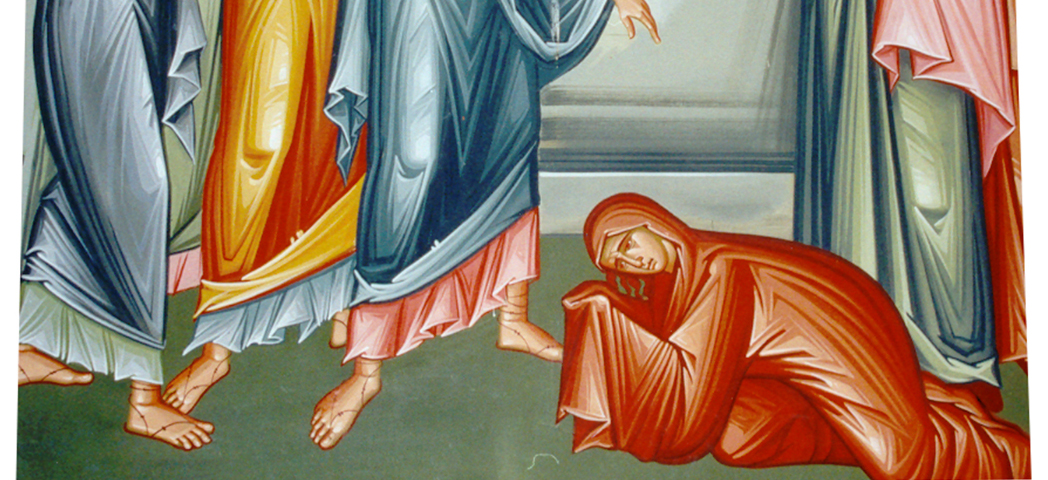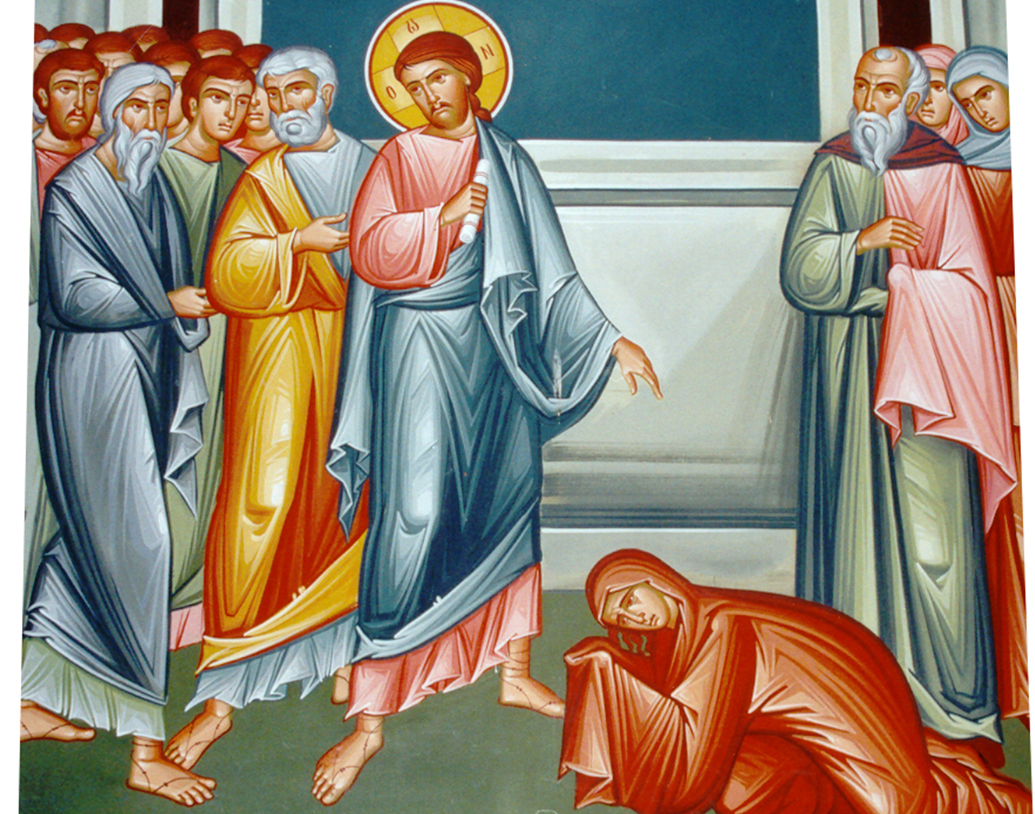
A reflection by Fr. Dave Warren, S.F.M., for the Eleventh Sunday in Ordinary Time. First Reading: II Samuel 12.7-10, 13; Second Reading: Galatians 2.16, 19-21; Gospel: Luke 7.36-8.3
The Bible is full of lies. Well, maybe that’s putting it too strongly. Let’s just say that the Bible is full of distortions. Here’s what I mean. I looked up today’s gospel reading in my Bible and what did I see? I saw a heading in bold print: “The woman who was a sinner.”
The Bible is full of distortions and this heading is one of them.
Now, before you denounce me to my superior, please allow me to say something in my defence. When the Bible was written, it did not contain any headings. They were added by later editors with the idea that headings would help people to understand the Bible. So, “The woman who was a sinner” isn’t really part of the Bible. Some man inserted this heading.
I didn’t say, “Somebody inserted this heading,” I said, “Some man inserted this heading.” I’m sure the person was a man, not a woman, because he sees in the story the deviant behaviour of the woman but not the deviant behaviour of the man. The woman is not even the central figure in the story. The central figure in the story—after Jesus, of course—is Simon the Pharisee.
I’d like to suggest an alternative title for today’s gospel. Instead of “The woman who was a sinner,” how about “The man who didn’t love Jesus”? Simon the Pharisee didn’t love Jesus. He neglected to greet Jesus with the most basic hospitality of the time. In contrast to Simon, the woman in the story showed great love for Jesus.
Jesus understands the situation this way: the woman showed great love because she had experienced great forgiveness; Simon showed little love because he had experienced little forgiveness.
The woman who showed great love for Jesus was not necessarily more sinful than Simon. But she was certainly more aware of her sinfulness than Simon was aware of his.
What is Jesus saying here? Jesus is not saying that the more we love Him the more we are forgiven. He’s saying that the more we experience forgiveness the more we love Him. Jesus is not suggesting that we increase the number and the size of our sins so that we will have more and bigger sins to bring to Confession and so qualify for greater forgiveness. No, the experience of forgiveness doesn’t depend on the number and the size of our sins. The experience of forgiveness depends on our awareness of our sinfulness.
The woman who showed great love for Jesus was not necessarily more sinful than Simon. But she was certainly more aware of her sinfulness than Simon was aware of his. She experienced greater forgiveness than did Simon because she was more aware of the disorder in her life than Simon was aware of the disorder in his.
The woman broke the rules. Simon the Pharisee kept the rules. The disorder in the woman’s life was more obvious than the disorder in Simon’s; she was a woman of ill repute. The disorder in Simon’s life was not so obvious; he was a respected citizen. Simon and his fellow Pharisees observed the minute details of the Law of Moses, all the while despising those who didn’t.
Phariseeism is an “occupational hazard” of religious people—people like us who go to church on Sunday. (There’s nothing wrong with going to church on Sunday. In fact, I try to go to Mass every Sunday myself.) But the ego can claim the credit for good things—like coming to church on Sunday and keeping the commandments. We know that we’re slipping into Phariseeism when we start to look down on other people.
Nothing fails like success. Our success in doing good things can create the illusion that we can make it on our own. Paul alerts us to this illusion in today’s second reading: “Brothers and sisters…we know that a person is justified not by the works of the law but through faith in Jesus Christ” (Galatians 2.16). In other words, we are not saved just by keeping the rules.
No matter how well we keep the rules, we all fall short. None of us loves as Jesus teaches us to love.
There are two kinds of sinners: there are sinners who break the rules and there are sinners who keep the rules. There are sinners like the woman in today’s gospel who break the rules. There are sinners like Simon the Pharisee who keep the rules.
To see that we are sinners is a precious gift from God. It is the very nature of Sin to hide from our awareness. In today’s first reading, the prophet Nathan confronts King David with his sin. Blessed was David who had Nathan to point out his sin. Even more blessed was David because he had the humility to listen to Nathan. Unfortunately, we don’t always have people like Nathan around us who have the courage to point out our sins. Nor are we always open to hear people who dare to point out our faults and failures.
There are moments in our lives when we see with clarity the disorder in our lives. Of course, the moments when we see with clarity the disorder in our lives are moments of embarrassment. But this embarrassment is the doorway to the grace and mercy of God.
There are two kinds of sinners: there are sinners who break the rules and there are sinners who keep the rules. Which kind are you? As for me, I am both.

